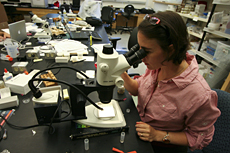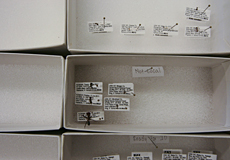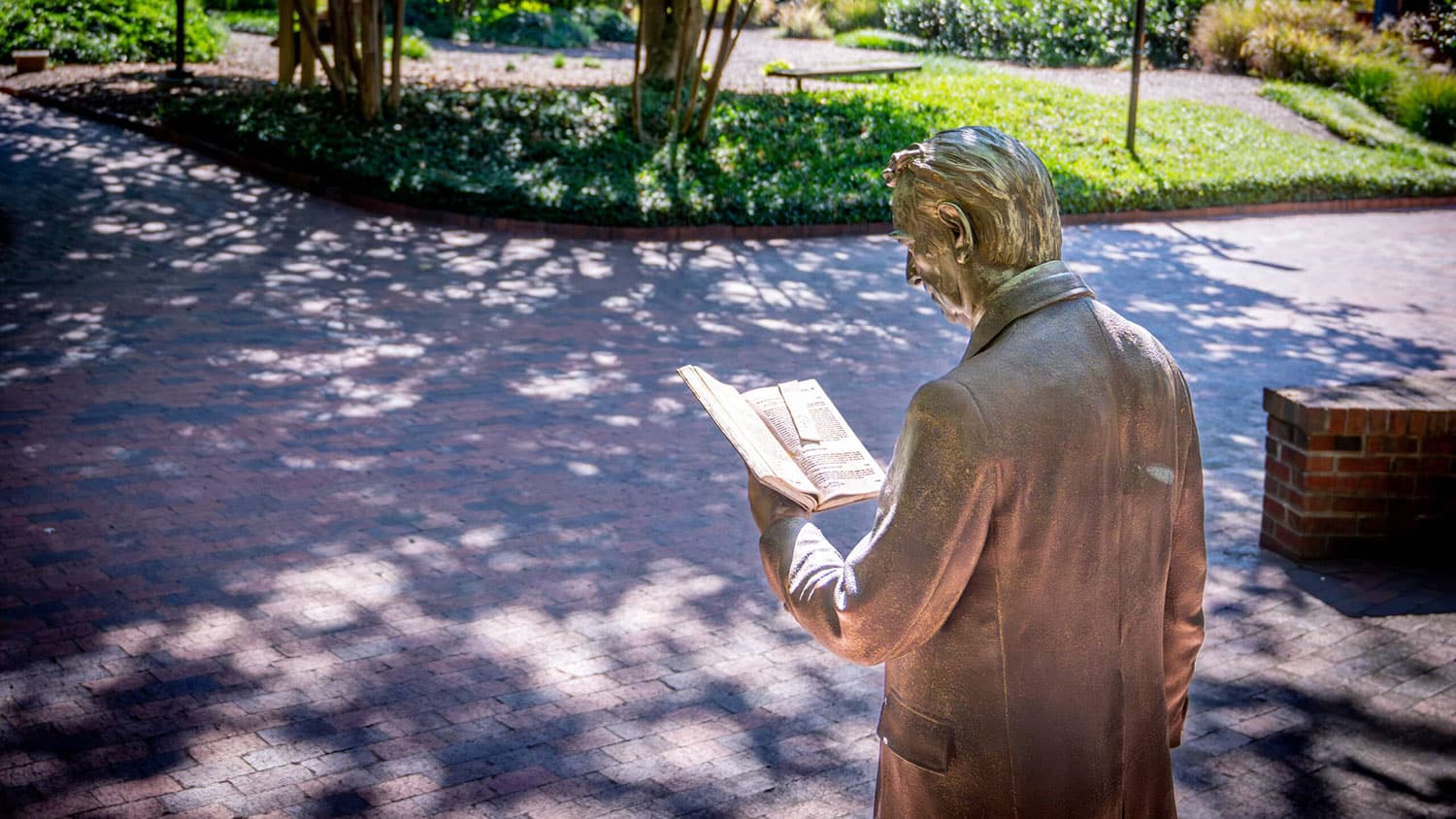Trail of Ants Leads to Lab
I don’t want to alarm you, but you may have Camponotus americanus crawling around in your backyard. Or Tetramorium caespitum creeping between the cracks in your front walkway. In fact, there are more than 200 species of these critters sharing our urban and suburban spaces; digging around in our yards, sneaking into our kitchens and fighting each other for territorial dominance.
They’re ants. And their life is no picnic.

“We’ve seen invasive ants that have become really destructive,” says Dr. Andrea Lucky. “They push out native ants, as well as other insects and small invertebrates. We’ve even seen parasitic species that stage a mutiny by killing the queen and taking over a colony, making the native ants their slaves.”
Your lawn is a war zone, and Lucky is on the front lines. The first rule of war: know your enemy.
The School of Ants
As a postdoctoral research scholar in biology, she runs a project called, “The School of Ants,” that recruits citizen scientists across the country to collect and identify different species of ants.
Joining the project is simple. Volunteers—both adults and children—register online to receive a collection kit in the mail. The kit includes vials to collect ants, along with detailed instructions on how to trap the ants, complete the research survey and ship the specimens back to NC State.

Surprisingly, this is the first ant census ever conducted, says Lucky. And it’s already paying off. The project has identified a previously unknown species, which was quickly shipped off to Harvard—home to the largest ant collection in North America—for further study and naming.
In the long run, the project will help scientists understand how ants are affected by things like climate change, land use decisions and development. It will help them track invasive species that can threaten agriculture, and monitor species, like the Chinese needle ant, that have a nasty sting (a health hazard if you’re allergic).
By opening up the research process to anyone and everyone, Lucky hopes the School of Ants will stimulate enthusiasm for basic science across North Carolina and the rest of the country.
“So much of the unknown is within easy reach,” she says. “It’s possible that there’s a first grader out there just waiting to discover a new species. It’s fun and exciting.”
The School of Ants project is funded by the National Science Foundation.
- Categories:


